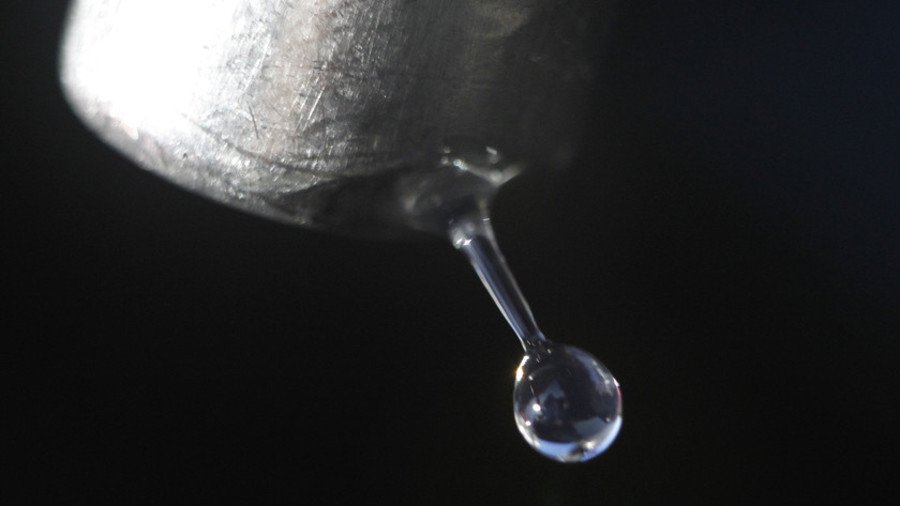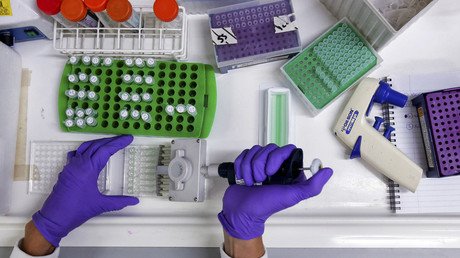Zero-carbon fuel ‘out of thin air’? Nanotube membrane start-up thinks big

Alumni from MIT and Yale universities have perfected nanotube technology which could eventually allow humans to 3d-print pretty much anything we desire, including creating carbon-free fuel “out of thin air.”
"This technology gives us a level of control over the material world that we've never had before," said Mattershift Founder and CEO Dr. Rob McGinnis, in a press release. "For example, right now we're working to remove CO2 from the air and turn it into fuels. This has already been done using conventional technology, but it's been too expensive to be practical. Using our tech, I think we'll be able to produce carbon-zero gasoline, diesel, and jet fuels that are cheaper than fossil fuels."
New York-based Mattershift has successfully created large-scale carbon nanotube (CNT) membranes that combine or separate individual molecules as and when required. CNTs have been around for a while; they were first discovered in 1991, but were prohibitively expensive to produce. Until now, that is.
There has been a 100-fold decrease in the production cost of carbon nanotubes in the last ten years alone, with a corresponding increase in quality. Mattershift's ability to scale up production of effective nanotubes could have major knock-on effects in diverse industries, from pharmaceuticals to space travel and colonization.
"It should be possible to combine different types of our CNT membranes in a machine that does what molecular factories have long been predicted to do: to make anything we need from basic molecular building blocks," said McGinnis. "We're talking about printing matter from the air. Imagine having one of these devices with you on Mars. You could print food, fuels, building materials, and medicines from the atmosphere and soil or recycled parts without having to transport them from Earth."
Could ‘miracle’ material graphene finally have a use by making seawater drinkable? https://t.co/uXdCtlj5wSpic.twitter.com/F3fEGcK7iP
— RT (@RT_com) April 4, 2017
The so-called 'molecular factories' form new raw materials but, as the technology improves over time much the same as 3d printing has, the researchers believe ever-more complex molecular factories will be developed. The factories employ Programmable Molecular Gateways (PMG) that consist of a carbon nanotube embedded in a flexible polymer sheet.
One example of a PMG type is a catalyst gate which adds or removes electrons, combining or splitting molecular parts. Protein gates operate on a similar principle, using enzymes, for example, to create a certain kind of antibody or other therapeutically useful compound. According to the Mattershift website, each polymer sheet contains roughly 250 trillion such gateways per square meter.
The latest breakthrough is the result of a collaboration between Mattershift and researchers in the labs of Dr. Benny Freeman at The University of Texas at Austin and Dr. Jeffrey McCutcheon at the University of Connecticut.
Newly invented eyedrops could replace glasses altogether https://t.co/5BfeEZ2G2Vpic.twitter.com/fUcgPEygUD
— RT (@RT_com) February 24, 2018
Later this year the technology will be deployed at a desalination plant, having demonstrated the ability to desalinate seawater using the least amount of energy ever required at pilot scale.
"We're excited to work with Mattershift because its membranes are uniquely tailored to allow salts to pass through our system while retaining our draw solute," said John Webley, CEO of Trevi Systems in Petaluma, California. "We already demonstrated the world's lowest energy desal process in our pilot plant in the UAE last year, and Mattershift's membranes are going to allow us to push the energy consumption even lower."
Like this story? Share it with a friend!














